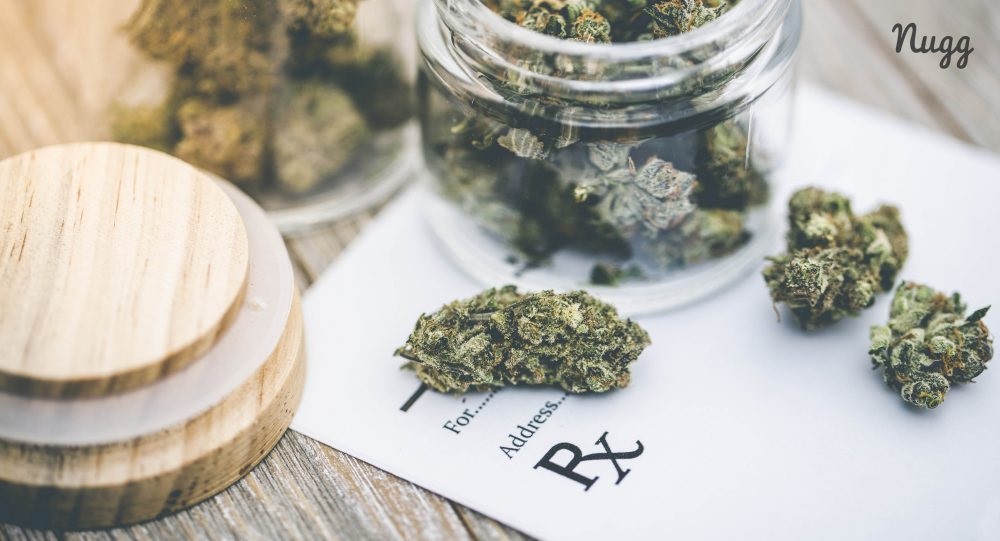
Eczema, also known as atopic dermatitis, is a medical condition affecting around 31 million Americans. It’s characterized by itchy, dry skin, rashes, raised bumps and swelling. It’s believed that eczema is brought on by genetic factors triggered by allergens or an imbalance in the skin’s microbiome.
Eczema is also primarily an allergic response, which causes the skin to dry out or become inflamed. While there are several common treatments for eczema, there is no known cure.
What Causes Eczema?
Eczema is thought to be a genetic disorder in many people, and it often first appears in infants and young children. In these cases, an individual is predisposed to eczema because the skin’s barrier is weak, allowing bacteria, allergens, and other irritants to harm and inflame the skin.
That isn’t always the case, though. Eczema can also be brought on by an imbalance in the bacteria on the surface of the skin. In cases where there is an excess of Staphylococcus aureus bacteria, the skin's barrier becomes weakened, exposing it to outside irritants.
In either instance, the effect is twofold, as the weakened barrier can trigger an excessive immune response, damaging and inflaming the skin.
The primary risk factors for eczema include:
- A genetic predisposition
- A history of family history of allergies
- Exposure to harsh, dry conditions
- Environmental irritants
- Exposure to certain chemicals
- Irritation by some fabrics, like wool and polyester
Eczema Signs & Symptoms
If you are experiencing eczema, you may experience one or more of the following symptoms:
- Dry skin
- Itching
- Inflamed or discolored skin
- Rash
- Raised bumps
- Crusty or oozing skin
- Thickening skin
- Overly sensitive skin
Eczema often doesn’t arrive on its own. Because it involves the body’s allergic and immune responses, there are several common complications associated with eczema. They include:
- Food allergies
- Skin infections
- Asthma
- Hay fever
- Darker patches of skin
- Allergic contact dermatitis
- Problems sleeping
- Irritant hand dermatitis
- Mental health issues
Can Cannabis Help Alleviate Eczema Symptoms?

Cannabis is often referenced as a potential treatment for eczema due to it’s anti-inflammatory and anti-itch properties. These properties have been studied rather extensively, going back to the dawn of the 20th century.
Aside from helping fight the inflammation and itch associated with eczema, cannabis has also demonstrated antimicrobial properties, meaning it can eliminate runaway Staphylococcus aureus bacteria that both cause eczema flare-ups and are brought on by them. In studies conducted on mice, researchers found that THC applied topically would treat allergic contact dermatitis by activating endocannabinoid receptors in the affected area.1
Additional studies have found that topical cannabinoids have the ability to shut down the cells responsible for releasing histamine, which is responsible for triggering allergic reactions. One study found that topical application of cannabinoids reduced itch by up to 60% in eczema patients.2
CBD alone has also been studied for its ability to relieve eczema symptoms because it is known to have anti-inflammatory and anti-itch properties. In one study, CBD showed the potential to reduce itch and inflammation from eczema, while hemp oil was able to modulate and restore the skin’s protective layer, killing runway bacterial colonies in the process.3
Another study conducted using self-reported data from a questionnaire along with photographic evidence found that topical CBD was able to improve improve eczema symptoms significantly.4
Legality and Doctor’s Recommendation
To determine if your state considers eczema to be a qualifying condition for medical marijuana, check out our Laws & Regulations section for the medical cannabis rules for your state.
If you find that your state recognizes eczema as a qualifying medical condition, you can seek a doctor’s recommendation to register for your state’s medical marijuana program.
How NuggMD Can Help

NuggMD is the nation's leading medical marijuana technology platform, serving patients in 22 states and growing. We’ve connected over 1,000,000 patients with their new medical marijuana doctors face-to-face via our state-of-the-art telemedicine platform.
We believe that every human being has the right to explore the benefits of medical cannabis and are fully committed to helping each patient explore all of their options in their journey to wellness. For further information on whether you qualify for medical cannabis, select your state.
Resources
1. Gaffal, E et al. “Anti-inflammatory activity of topical THC in DNFB-mediated mouse allergic contact dermatitis independent of CB1 and CB2 receptors.” Allergy vol. 68,8 (2013): 994-1000. doi:10.1111/all.12183
2. Maghfour, Jalal et al. “An Observational Study of the Application of a Topical Cannabinoid Gel on Sensitive Dry Skin.” Journal of drugs in dermatology : JDD vol. 19,12 (2020): 1204-1208. doi:10.36849/JDD.2020.5464
3. Baswan, Sudhir M., et al. “Therapeutic Potential of Cannabidiol (CBD) for Skin Health and Disorders.” Clinical, Cosmetic and Investigational Dermatology, 8 Dec. 2020, www.dovepress.com/therapeutic-potential-of-cannabidiol-cbd-for-skin-health-and-disorders-peer-reviewed-fulltext-article-CCID.
4. Palmieri, B, et al. “A Therapeutic Effect of Cbd-Enriched Ointment in Inflammatory Skin Diseases and Cutaneous Scars Clinical Trial.” Clin Ter, vol. 170, no. 2, 2019, pp. 93–99, www.clinicaterapeutica.it/2019/170/2/05_PALMIERI-VADALA.pdf, 10.7417/CT.2019.2116.
The information in this article and any included images or charts are for educational purposes only. This information is neither a substitute for, nor does it replace, professional legal advice or medical advice, diagnosis, or treatment. If you have any concerns or questions about laws, regulations, or your health, you should always consult with an attorney, physician or other licensed professional.

